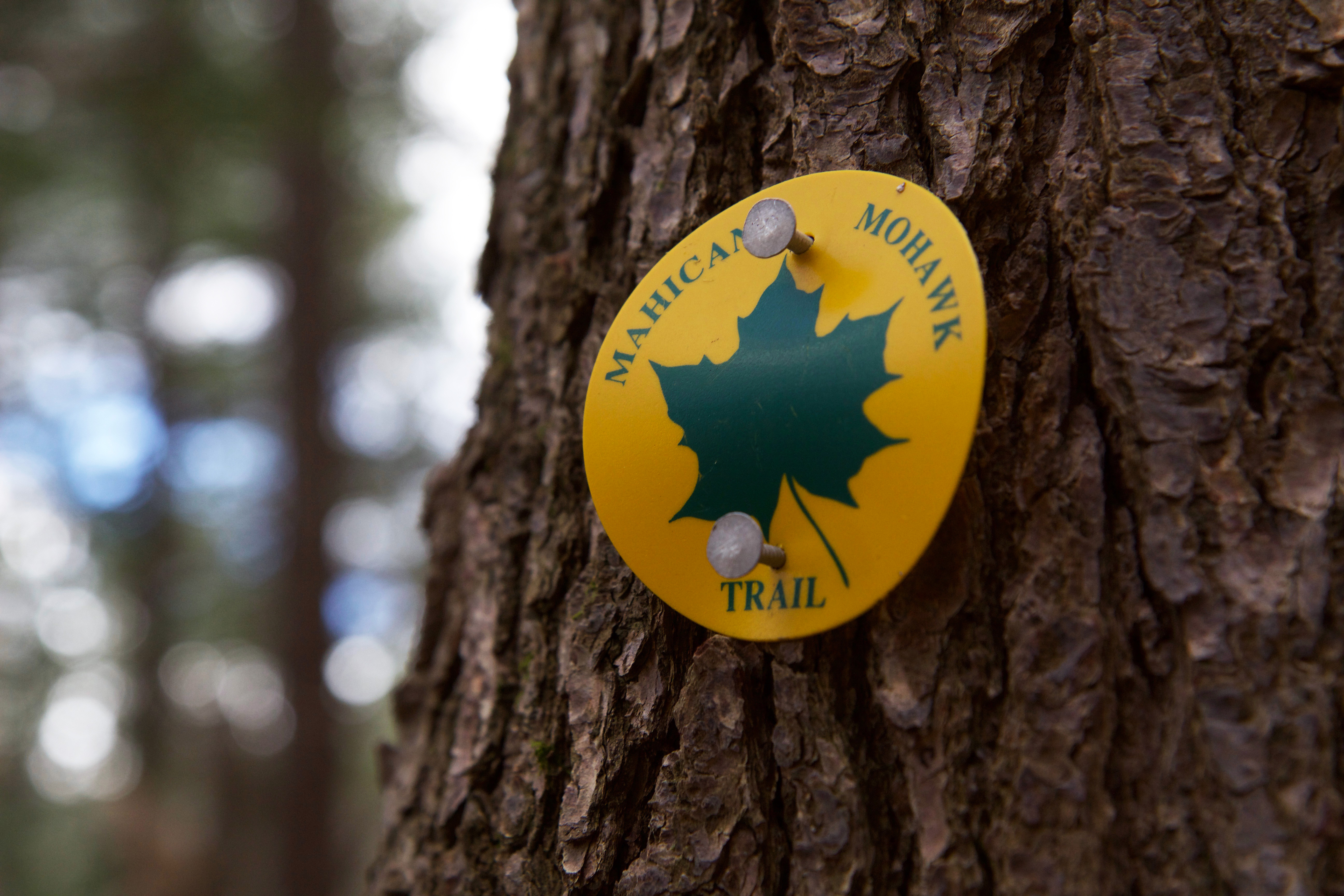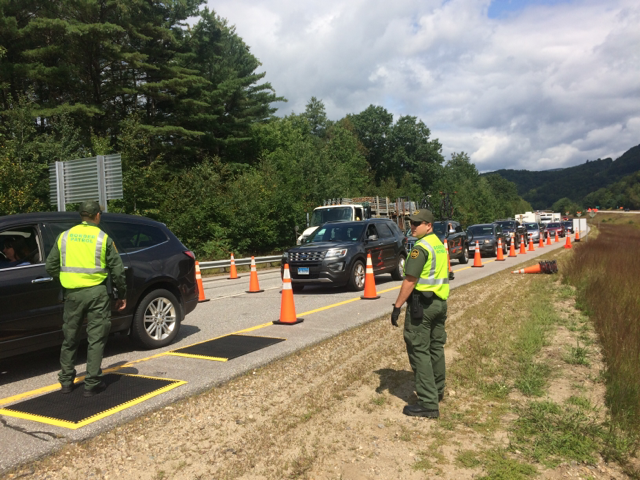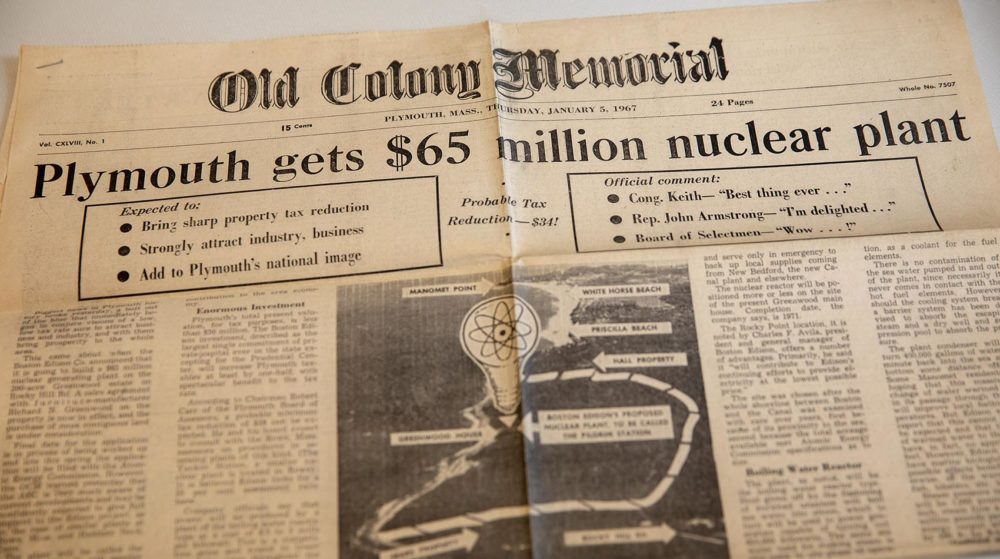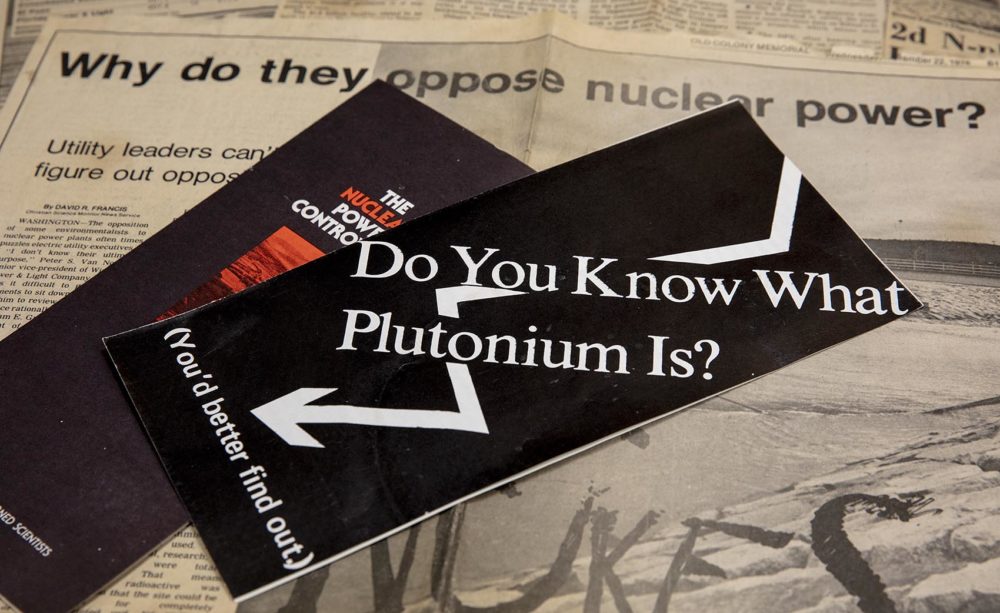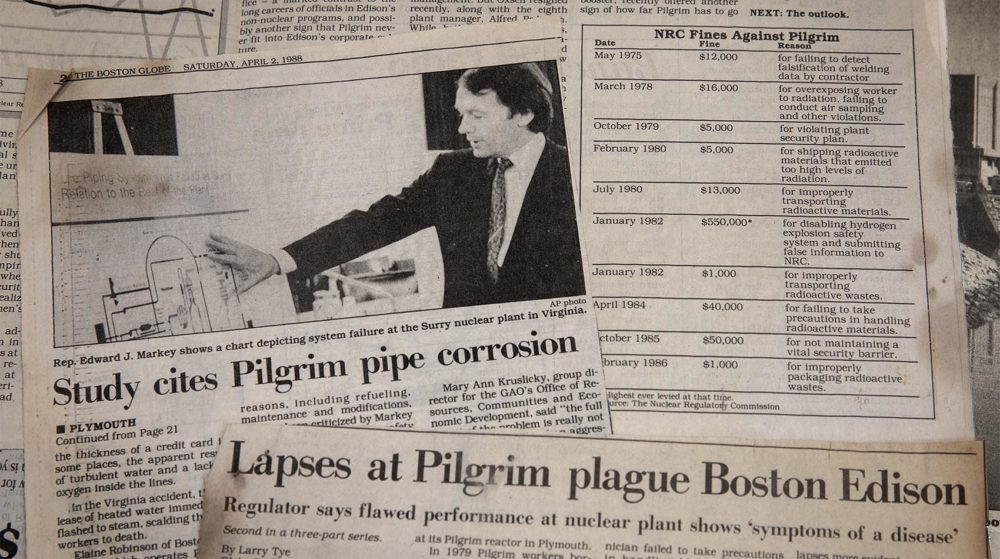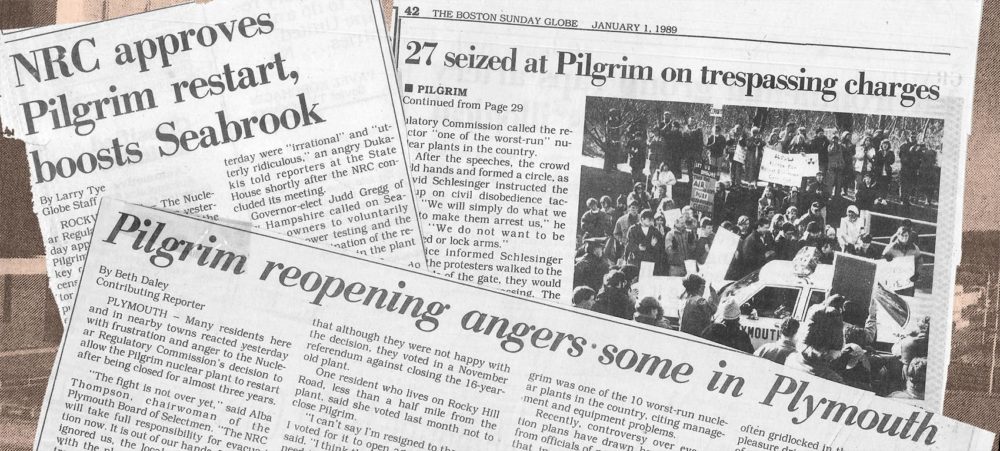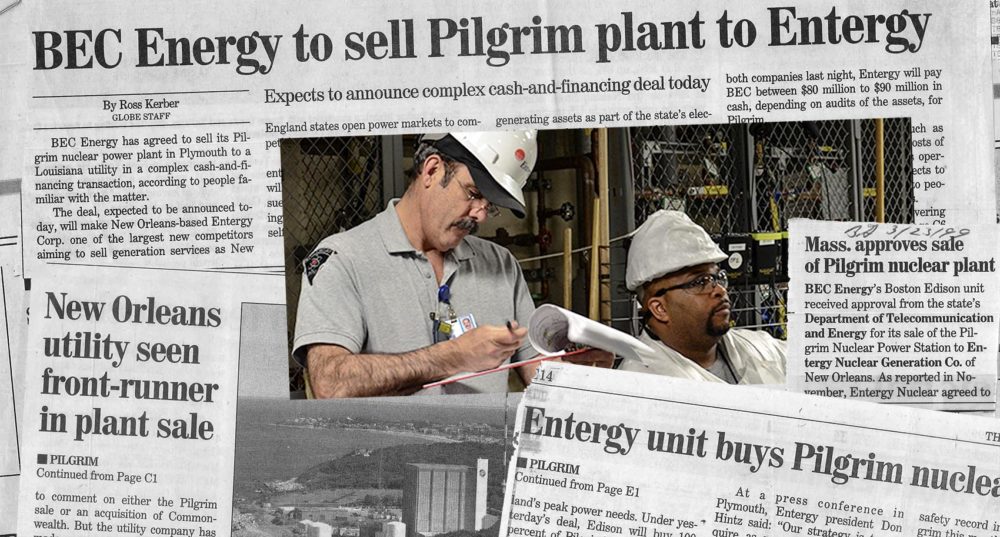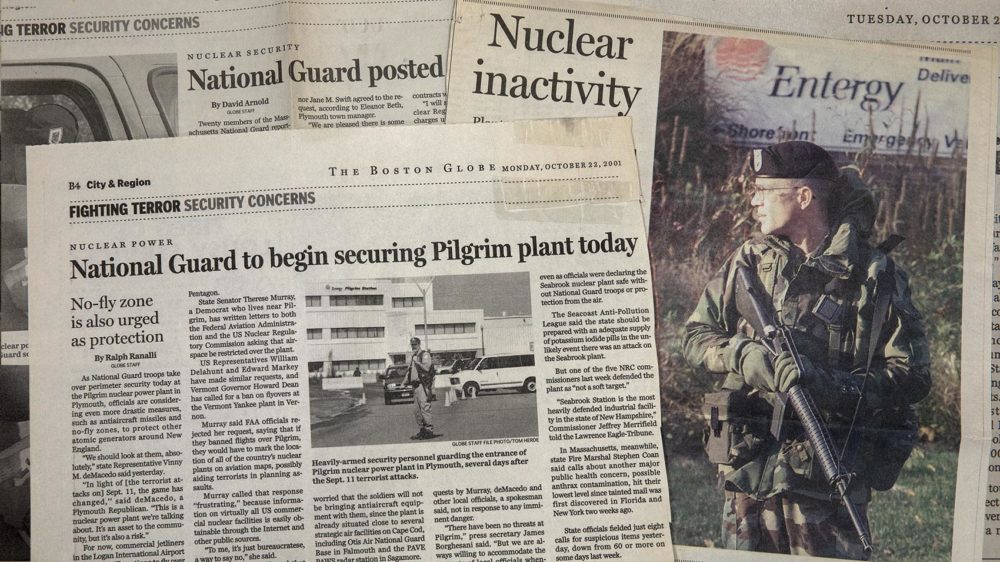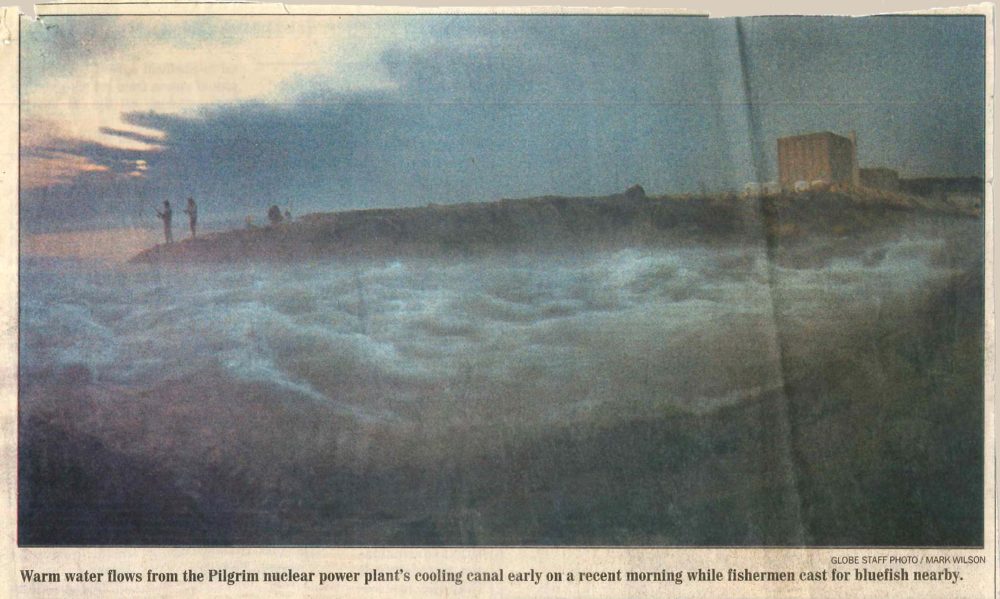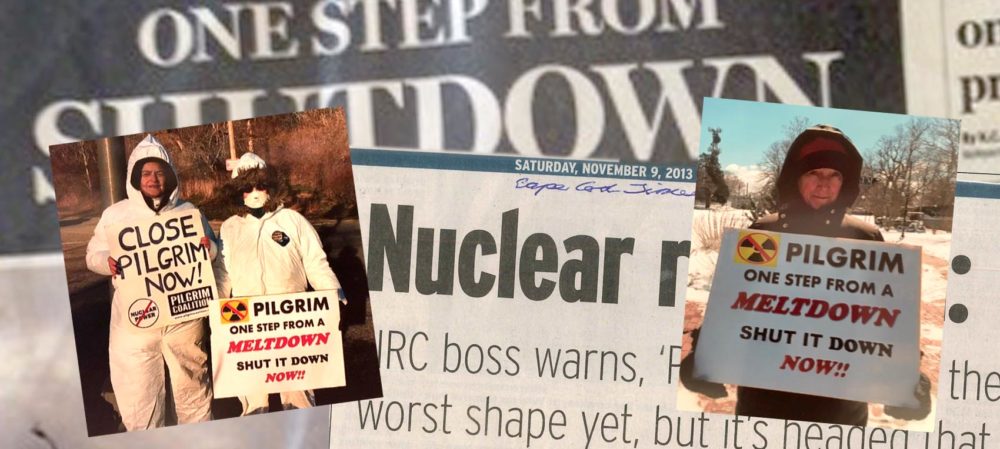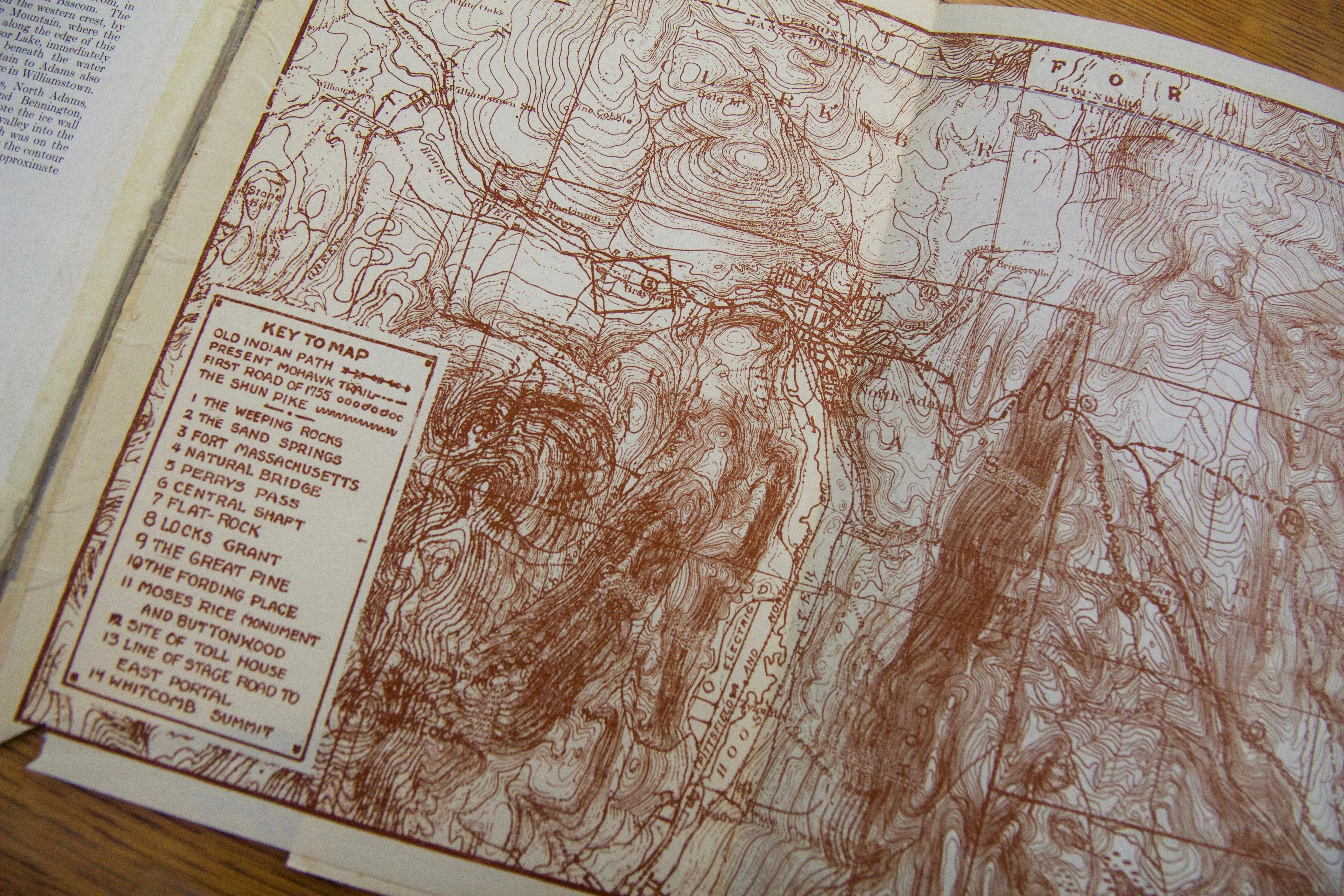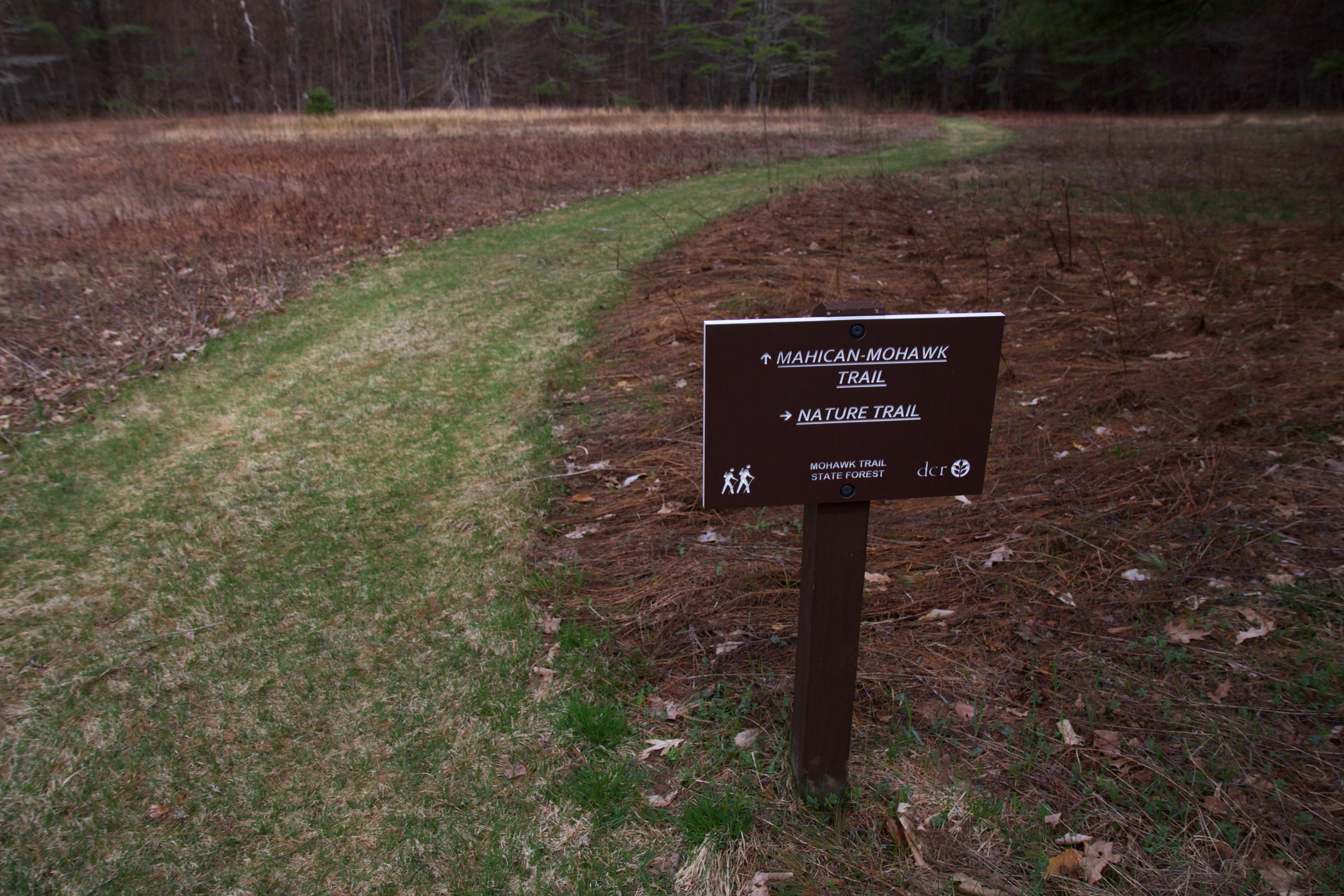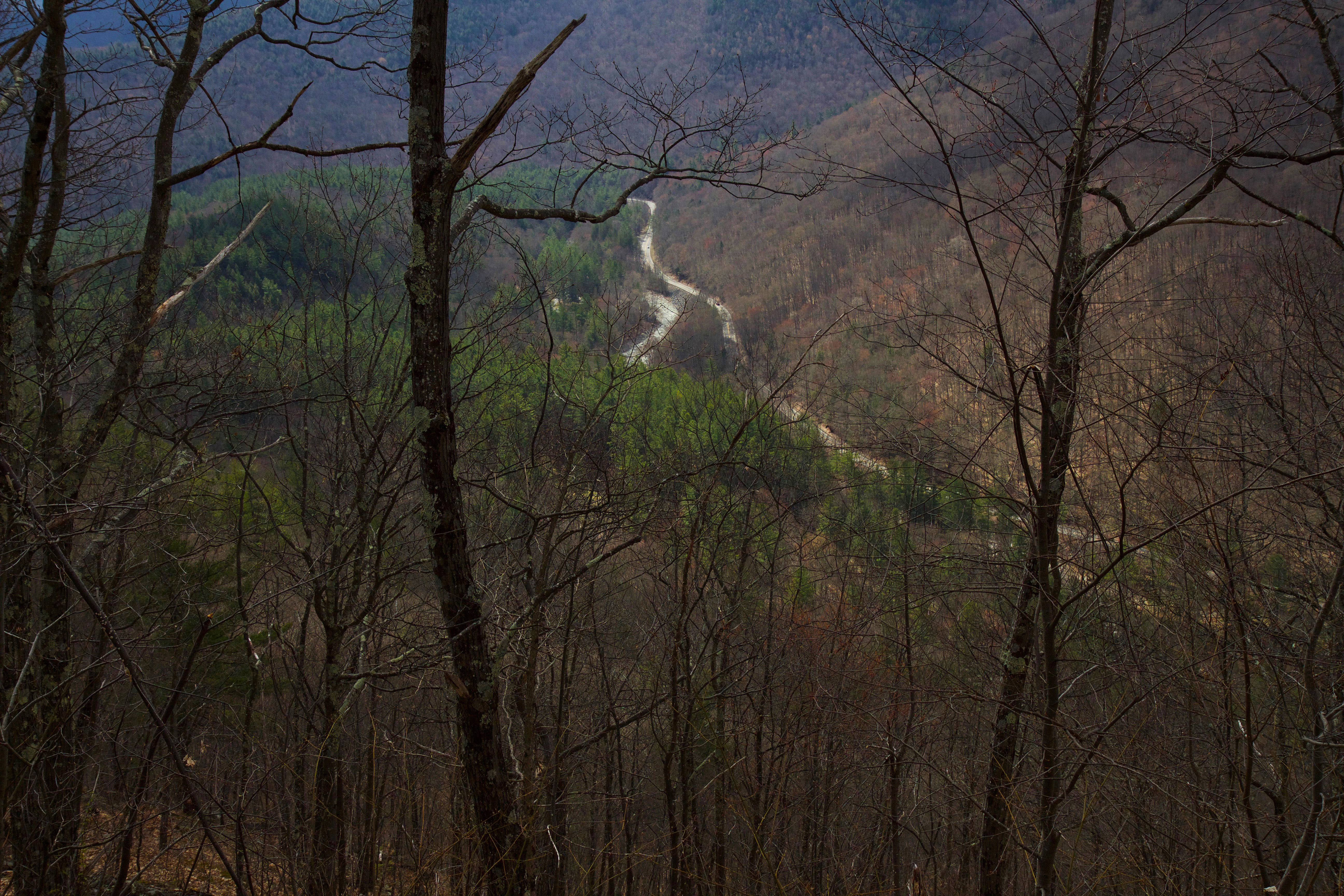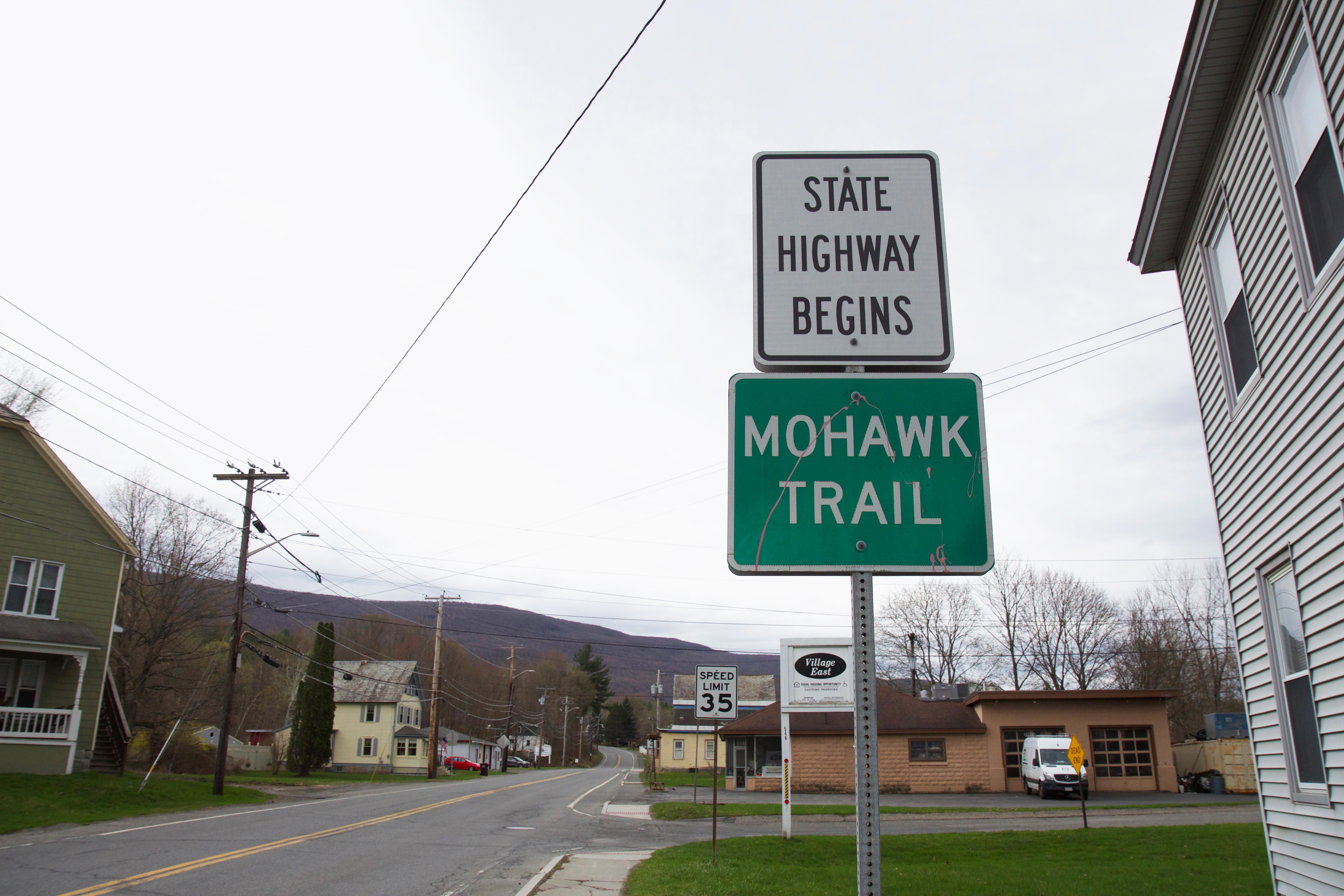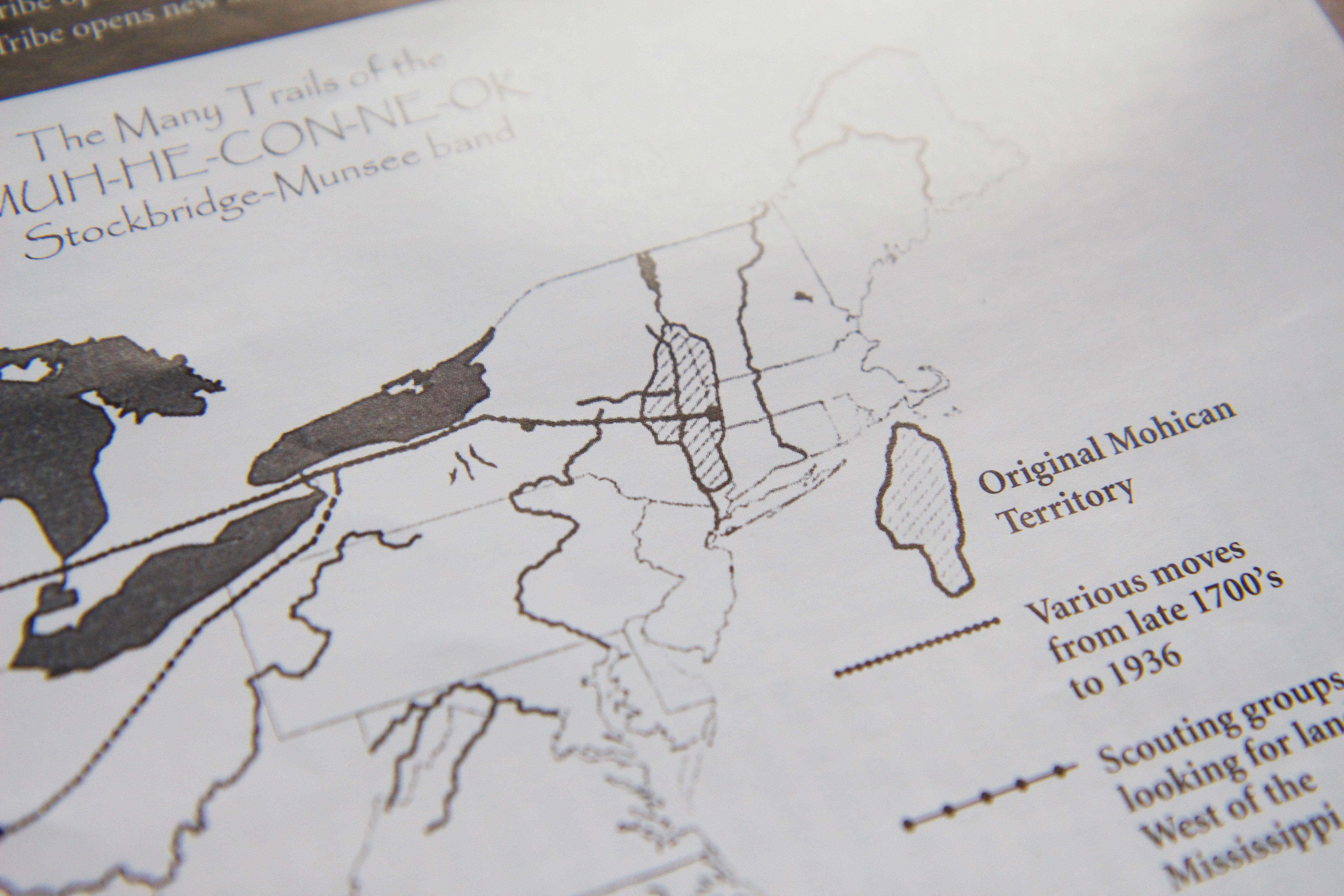Episode 148: Making Amends On The Mohawk Trail; Border Stops Far From The Border
This week on NEXT:
We’ll take a look at police body cameras around the region. Plus, a border stop far from the border.
As Pilgrim Nuclear Power Station in Plymouth, MA goes to close, we discuss the decommissioning process. Plus, we reflect on the history of the plant.
And, how the Mohawk Trail got its name, and who has been left out.
It’s NEXT.
Photo at the top of the page: The Mahican-Mohawk Trail, a 100-mile trail intended to follow the area’s indigenous footpaths along the Deerfield and Cold rivers and over the Hoosac Range, is named in part for the Mohicans, whose homelands are in Berkshire County. Photo by Elodie Reed
How Police Use Body Cameras Around New England
Police departments around the country have started issuing body cameras to their officers in recent years, as a way to bring accountability and transparency to law enforcement. In some parts of our region, this practice has been widely adopted. In Vermont, for instance, 31 agencies now have body cameras. But some of the bigger cities have been slower to start using the cameras, which are meant to record any interactions with the public. Hartford, Connecticut, and Portland, Maine have just started pilot programs, and both Boston and Worcester started training officers this month.
In Burlington, VT, recently released body camera footage showed police allegedly using excessive force against two black men. The videos sparked public outcry and calls for police reform.
But Vermont’s largest police force–the Vermont State Police–doesn’t outfit all their troopers with the devices. VPR’s Liam Elder-Connors has more.
Checkpoints Set Up in 100 Mile Border Zone
Over Memorial Day weekend, U.S. Customs and Border Protection set up a checkpoint in the northern New Hampshire town of Columbia–that’s about 25 miles from the border.
But over the last few years, CPB has set up checkpoints much further South. In fact, as we’ve reported, federal agents are allowed to set up immigration checkpoints within 100 miles of any U.S. border, a zone that includes almost all of New England. For the first time in 10 years, at the start of May, a stop was set up in Vermont.
VPR’s John Dillon joins us now to discuss what happened at that stop.
A Somali Immigrant’s Long Journey to New Hampshire
On the Southern border, we’ve been hearing stories about thousands of migrants–legally seeking asylum–being held for long periods of time as they await a ruling on their case.
NHPR’s Todd Bookman brings us the story of a 28-year old Somali man, whose immigration story started on the border of Mexico and California and brought him to the Strafford County Jail in Dover, New Hampshire. Earlier this month, he was released after more than two and a half years in detention.
Decommissioning the Pilgrim Nuclear Power Station
The end of May also means the end of the Pilgrim Nuclear Power Station in Plymouth, Massachusetts. But as the plant shuts down, what will that mean for the spent fuel that’s on-site, and for other clean up efforts?
Barbara Moran is the senior editor of WBUR’s environmental vertical, Earthwhile. She’s been reporting on the station as part of a series, “Closing Pilgrim.”
The Earthwhile Team also made a helpful Q&A about the closing of the plant, you can read that here. You can also listen to the whole “Closing Pilgrim” series here.
A History of Pilgrim Nuclear Power Station
- The Old Colony Memorial front page from January 5, 1967. Photo by Robin Lubbock for WBUR
- Photo by Robbin Lubbock for WBUR
- Photo by Robbin Lubbock for WBUR
- Photo by Robbin Lubbock for WBUR
- Photo by Robbin Lubbock for WBUR
- Photo by Robbin Lubbock for WBUR
- Photo by Robbin Lubbock for WBUR
- Photo by Robbin Lubbock for WBUR
- Photo by Robbin Lubbock for WBUR
As Barbara said, a nuclear plant that goes back to the late 60s has a lot of history, of power and protests, of promise, and of people. WBUR’s Miriam Wasser put together this history of the plant.
Mohicans and the Mohawk Trail
- A map at the back of William Browne’s 1920 booklet, “The Mohawk Trail: Its History and Course” shows what are believed to be the original, indigenous footpaths through the area around the Mohawk Trail auto road. This is one of the sources a class of 1992 Williams College Winter Study students and their teacher, Lauren Stevens, used to trace out the Mahican-Mohawk Trail. Photo by Elodie Reed
- The Mahican-Mohawk Trail Partnership is considering making trail kiosks with educational information about Native people and their history in western Massachusetts. Photo by Elodie Reed
- The Mohawk Trail road runs alongside the Deerfield River, as seen from the Mahican-Mohawk Trail. Photo by Elodie Reed
- Even though its indigenous tribes, like the Mohicans, are still alive, The Mohawk Trail tends to represent Native presence in the past. This is in part due European colonizers forcing Native people out of their homelands and those tribes losing not only territory but traditions, resources, and documented history in the process. Over the past few decades, members of the Mohican Nation Stockbridge-Munsee Band, which now has a federally-recognized reservation in Wisconsin, has been making trips back east to try and preserve its past – and future. Photo by Elodie Reed
- A map created by the Stockbridge-Munsee Band shows Mohican homelands along the Mahicannituck River, later renamed the Hudson River. Before they were forced out by European colonizers, the Mohicans had territory extending into the Berkshire County part of Massachusetts, including the western-most part of what is now called the Mohawk Trail. Photo by Elodie Reed
One of the most scenic, and, in places, scary, summer drives you can take in New England is the historic Mohawk Trail, which stretches almost 70 miles from Montague, Massachusetts to Williamstown, along Route 2. Long before it was a tourist highway, it was a native trade route, and while named for the Mohawks, there was another tribe that lived on that land, the Mohican Nation Stockbridge-Munsee Band.
Only about 1,500 members of the band survive today, half of whom live in Wisconsin.
Elodie Reed has been reporting for The Berkshire Eagle on efforts to recognize the Mohican’s role in the history of the Mohawk Trail.
You can read her three-part series for The Berkshire Eagle here.
Send Us Your Favorite New England Music
About NEXT
NEXT is produced at Connecticut Public Radio
Host: John Dankosky
Producer: Lily Tyson
Digital Producer: Carlos Mejia
Senior Director: Catie Talarski
Contributors to this episode: Liam Elder-Connors, John Dillon, Todd Bookman, Barbara Moran, Miriam Wasser
Music: Todd Merrell, “New England” by Goodnight Blue Moon, “It’s a Conspiracy” by Kerrin Connolly
New to NEXT? You can find every episode or one you missed within our archives.
We need your feedback! Send critiques, suggestions, questions, and ideas to next@ctpublic.org. Help us spread the word! If you like what you hear, rate and review us on iTunes.

